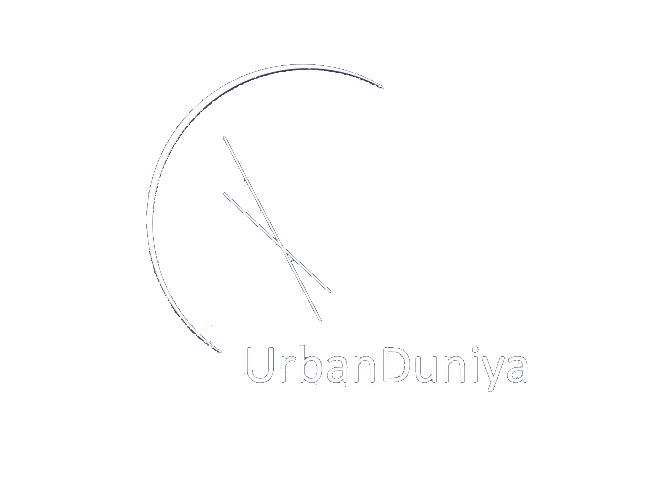 Understand safety
Understand safety
Safety is a complicated issue, and has no one simple answer for any part of the world. The media do a good job of scaring the hell out of would-be travellers, especially where Pakistan is concerned. It is important to understand that while there is some truth to what the media report, it is rarely the full picture. Nowadays, few countries are as misunderstood as Pakistan.
Different safety issues affect different parts of Pakistan at different times. It is simply not possible to give detailed and accurate safety advice for every part of the country, as the security situation can change hour-to-hour, and often the gravity of a security situation is only truly understood after an incident occurs.
Parts of Pakistan are very dangerous for anyone to travel in, mostly owing to lawlessness and its consequences. For at least the past decade, the Federally Administered Tribal Areas (FATA, also known as the “Tribal Areas”) along the border with Afghanistan have been off-limits to most outsiders. Much of Balochistan is also unstable enough for travel advisories to warn against visiting the province. This hasn’t stopped some travellers from going there.
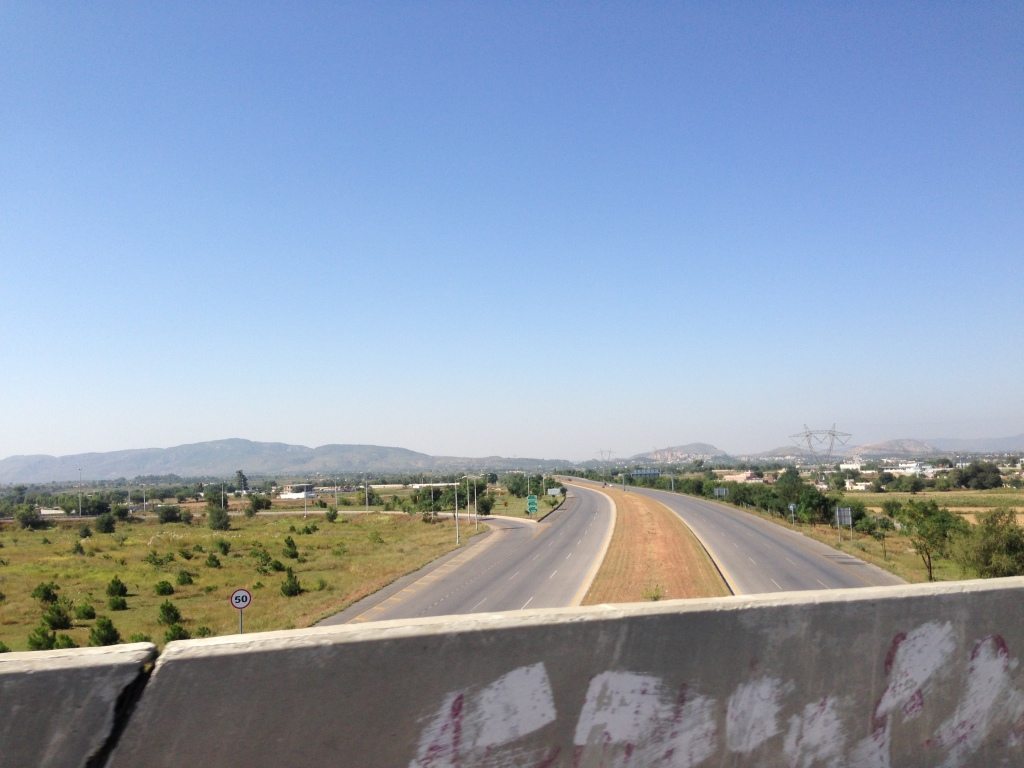
The motorway west from Islamabad is the main route into Khyber Pukhtoonkhwa
Sindh and Khyber Pukhtoonkhwa (formerly known as North Western Frontier Province) also suffer from various issues although the risk is generally considered less (and more manageable) than in the aforementioned regions. Punjab and Gilgit-Baltistan are Pakistan’s two most stable regions, although they have experienced violence in recent times. Certain parts of these provinces are also known to be more stable than others, although these areas can change depending on the happenings of the day
Life goes on in much of Pakistan (particularly in Punjab and Gilgit-Baltistan) despite the heightened security level; bombings and other acts of public violence do not occur in most people’s lives as a routine matter. Thankfully, in Punjab and Gilgit-Baltistan, security checks at shopping centres, entrances to cities and important public sites have become more of a daily nuisance than a demarcation of safe and unsafe zones. That said, there is always the possibility for something to go wrong – and from time to time it sadly does.

Guns in public at the Quaid-e-Azam Mausoleum in Karachi
Will I be safe?
Is anyone safe anywhere nowadays? The decision to travel to Pakistan must be a personal one – we can’t make it for you. What we can do is recommend you make yourself as aware as possible about the current situation in Pakistan.
Ask yourself questions including;
- Will I be visiting a region known for lawlessness?
- Will I be visiting at a time of heightened political tension?
- Will I be visiting at a time of heightened religious sensitivity?
- Will I be travelling alone?
- Will I be travelling blindly?
- Will I be travelling aimlessly?
- Will I struggle to adapt to a vastly different culture?
- Is it my first visit to the subcontinent and/or a traditional Muslim society?
- Will I feel overwhelmed by the security presence? (There are a lot of guns in Pakistan, many of them in public. Many of them rarely get used, but the sight of them can alarm some newcomers. Moreover, common security checks can be a bit daunting for anyone used to a more relaxed lifestyle).
If you answered ‘no’ to these questions, you are on the right track, but it’s not the end of the story.
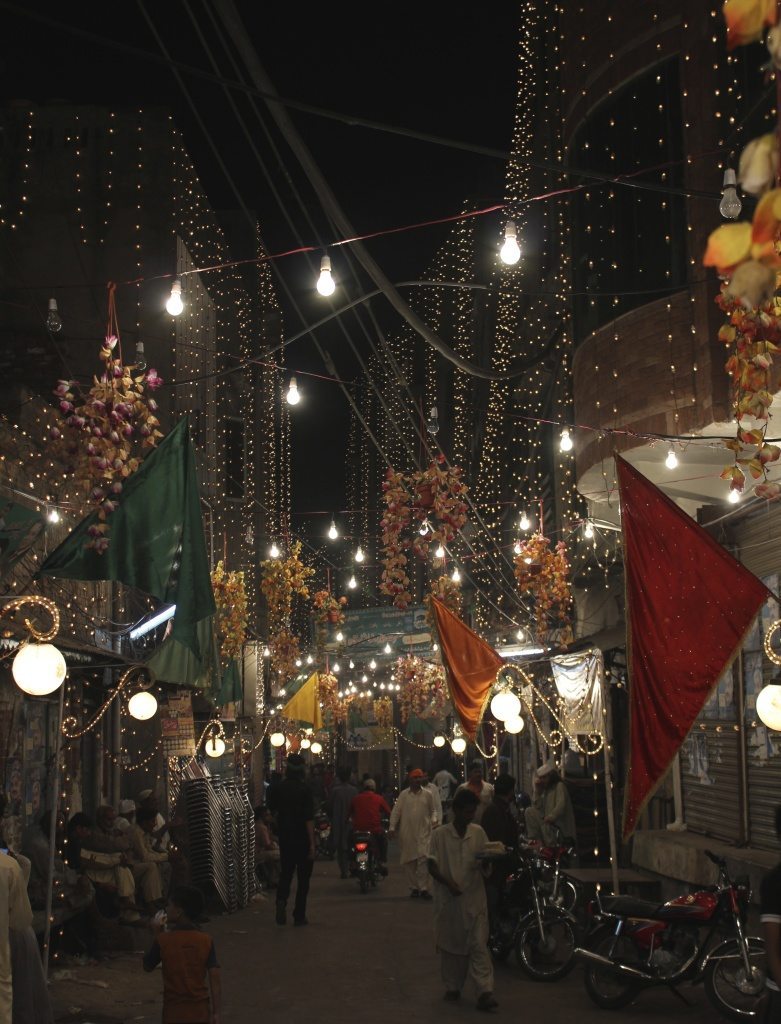
Religious festivals can be a great time to visit Pakistan, but they can also raise the security alert level.
Considerations include;
- No-go areas (both regions like FATA, and even the downtown of any city if there’s some rally going on – keep up to date)
- Political campaigns – watch the news and try not to visit in the middle of one.
- Periods of religious sensitivity – including but not limited to Ramadan, Eid al-Fitr and Muharram.
- Travelling with someone, especially a friend who knows Pakistan, can really improve your experience and guide you with safety.
- A prepared traveller has an awareness of the issues on-the-ground, and knows where to go and what to do.
- First time travellers to Pakistan might benefit from having a planned trip, to reduce the likelihood of “wandering” into trouble, although they should also be prepared to change their plans if need be.
- Most Pakistanis don’t expect foreigners to leave their culture at home, but cultural sensitivity (including conservative clothing and appropriate behaviour) goes a very long way in this rather conservative nation. It also helps you blend in and be less conspicuous as a foreigner.
- Comprehensive travel insurance – don’t go without it. Most likely you’ll only use it for a doctor’s visit after one too many spicy kebabs, but you just never know.
Risk is involved in any form of travel, and just as we do when travelling anyway, we need to reduce the risks as much as possible. We hope this gives a balanced view of the issues involved in visiting Pakistan, and educated readers to make their own informed decision. The majority of travellers to Pakistan leave with nothing but incredible memories, but the tragic fate of an unlucky few shouldn’t be forgotten.
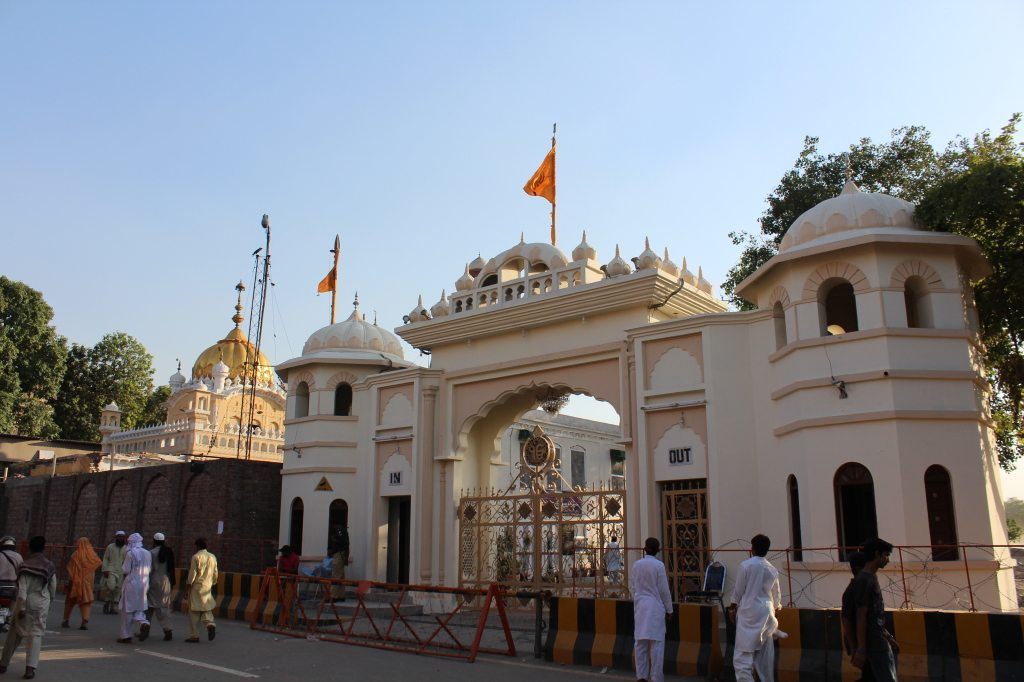
Visitors to this Sikh gurdwara in Lahore are subject to some serious security screening.
To go or not to go?
Before you make your decision to travel to Pakistan or otherwise, inform yourself from as many different sources as possible, and don’t base your decision on just one piece of advice.
- Speak to any Pakistanis you may know in your home country. Ask them for their opinion and advice – and if you are close friends, perhaps consider travelling together!
- Read internet forums, and perhaps ask a question yourself! One particularly good forum for information is the Lonely Planet Thorn Tree’s Pakistan branch.
- Watch and read the news – find out what’s happening now. Consider whether a certain event (eg – in an isolated part of the country) may or may not affect your trip in another part. Remember that only bad stories usually make the news. You won’t hear reports about the millions of Pakistanis happily going about their day-to-day lives. BBC News’s Asia page is quite a good resource, as is Al Jazeera’s Central and South Asia page, and Pakistan’s Dunya News.
- Read government travel advisories – such as the Australian Government’s SmartTraveller Travel Advisory for Pakistan or the British Foreign Office’s Pakistan Travel Advice.
Ultimately, the decision to travel is yours – the best we can offer is the above advice and links to appropriate information. The decision is different for each person, as every potential traveller has their own personal circumstances and factors to consider.
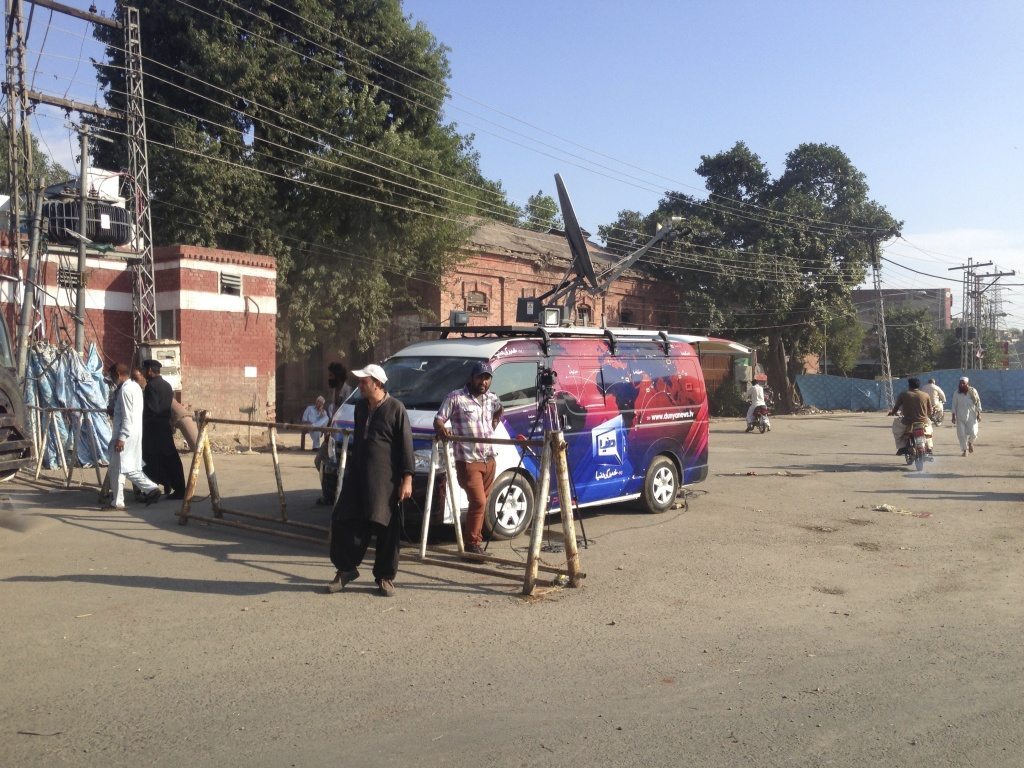
A Dunya News van with a roadblock at a public event
If you go…
When you’re in Pakistan, stay informed about current events. Keep watching or reading the news, stay in touch with family and friends, and chat with the locals and get a range of opinions – they’ll have a good idea of what you should and shouldn’t be doing. Get travel insurance – just in case – and make sure that it covers the parts of the country you are planning to visit.
When you come back – tell the world! We love feedback, and would love to hear about your trip. Your friends and relatives will probably want to hear all about it too, and you owe it to other travellers to enlighten them about the realities of travel in Pakistan, so that they can make a more informed decision themselves!
Safe travels!
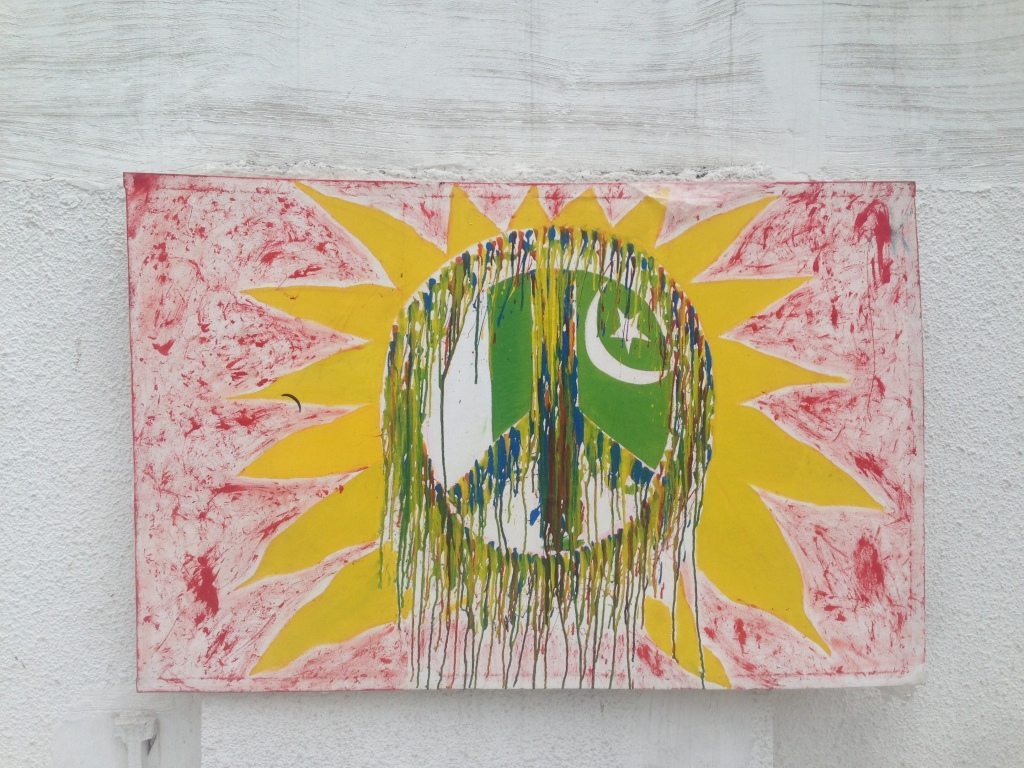
سلام (salam)… “peace”…
